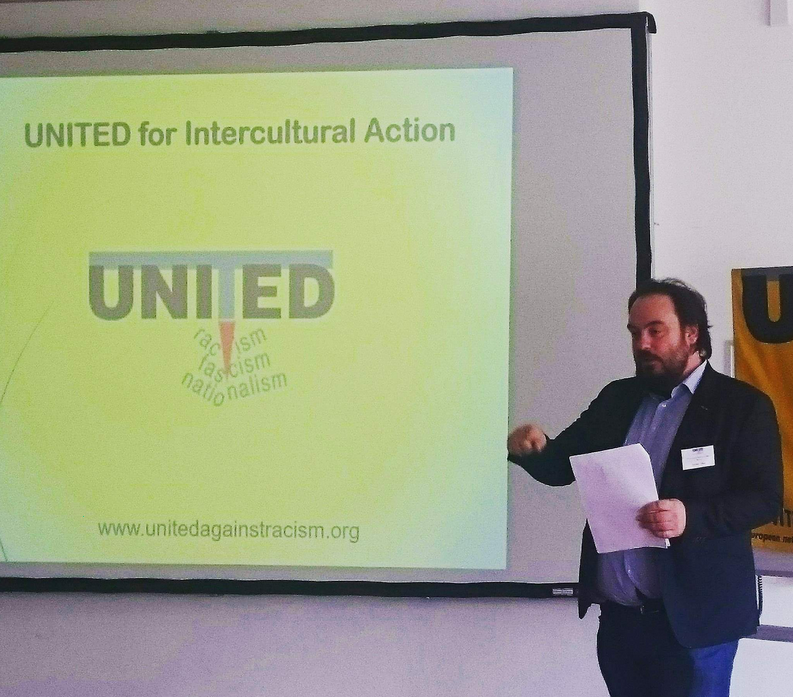The ‘Building Shared Space – Best Practices in Integration’ UNITED conference took place in Budapest between 22-25 May 2018 with the aim of discussing the most important challenges as well as possible solutions within the field of migrant integration in Hungary and in the European Union.
On the first day Balint Josa, Programme Coordinator of UNITED opened the conference by giving a presentation about the activities of UNITED and the local Hungarian context in terms of migration and migrant integration. The programme continued with a non-formal networking activity where participants introduced their organisations’ work to each other.
On the second day Mozer Julia from CEJI Jewish organisation presented the „Facing Facts” course that aims to tackle hate speech and hate crimes by offering online courses for civil society as well as police officers and decision-makers. Gibril Deen from Mahatma Gandhi Human Rights Organisation, gave a keynote speech presenting the challenges refugees and migrants face in Hungary and how his organisation aims to support their integration using football and sports as a tool to raise awareness and reduce racial prejudice in the Hungarian society. The afternoon continued with Tolga Karakayali’s presentation from MUDEM Refugee Support Centre, Turkey. Mr Karakayali provided an extensive overview of the situation refugees face in Turkey in terms of access to rights and services. In the last session of the day, Shumaem Bin Wasim, Migrant Community Representative of Subjective Values Foundation shared his personal experience as a migrant living in Hungary. As the closing of the day, participants engaged in discussion concerning the topics of the day and compared their national contexts, as well as discussed possible solutions that can be implemented in their own countries.
The third day of the conference began with the keynote speech of Balint Josa, Programme Coordinator of UNITED on the cultural aspects of migrant integration. Mr Josa explained the concept of multiculturalism and current and past directions in intercultural education in Europe. Mr Josa continued by presenting two successful integration projects: the ‘Get Down to Business’ project of SVF and the MAWIC project of Dekra Akademie. The programme of the conference continued with a panel discussion on the role of civil society in the migrant integration process with the representatives of OSCE/ODIHR, the European Solidarity Centre (Poland), Network of Multicultural Associations, the International Protection Service (Italy) and the NIEM Evaluation Network. Next, Mustapha Seray Bah from Art 1. Midden Nederland shared his experience as a trainer and information officer regarding the challenges that migrants face on a daily basis in terms of discrimination in the labour market. The day finished with a final roundtable session where participants engaged in a facilitated discussion on the topics of the day and shared their conclusions as well as discussed possible solutions on improving existing practices of migrant integration.
On the last day of the conference, participants had the chance to join a study visit at three national and international organisations based in Budapest, namely the Mahatma Gandhi Human Rights Organisation, Menedék Egyesület and Minority Rights Group Europe.
More info on the UNITED website: http://www.unitedagainstracism.org/
